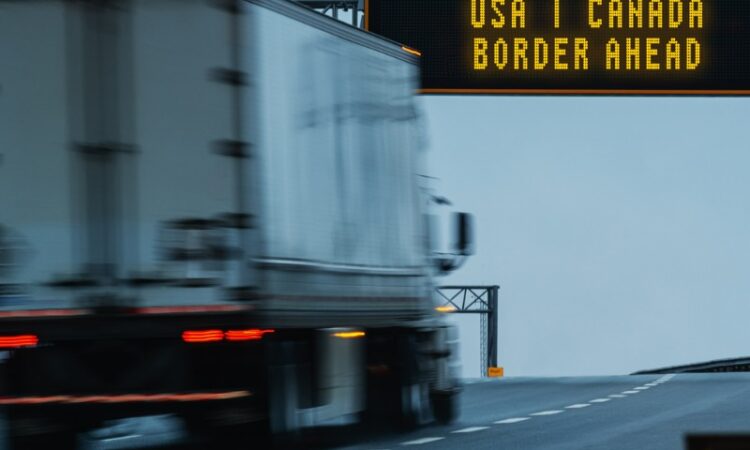In July 2024, a U.S. court found a truck driver had crossed several lanes of traffic, causing a chain reaction that ended with the death of another truck driver who had steered into the emergency lane of the highway and gotten out of his truck.
A Georgia jury awarded $47 million in a wrongful death suit against the truck company deemed responsible.
It’s a recent example of a ‘nuclear verdict’ — court awards of more than $10 million — against trucking companies. And it’s very much on the radar of Canadian trucking insurers that cover Canadian-based trucking companies travelling in the United States.
“What we’re seeing is a continuation of a long-term trend in the U.S. with nuclear verdicts,” says Olivier Bernier, director of long-haul trucking and commercial automobile for Quebec at Echelon Insurance.
“Insurers are going to get hit directly with those claims. We also have reinsurers, and they’re also going to be increasing costs for us because long-haul trucking businesses do a lot of transportation in the U.S. I’d say that’s the primary [risk for long-haul trucking].”
Since federal judicial appointments are made by the president, a pattern of nuclear verdicts has recently emerged in the so-called ‘red states’ that predominantly vote Republican. But they happen in ‘blue states’ too.
Texas and Georgia are examples of red states on Canadian trucking insurers’ radar. And Pennsylvania, a swing state that voted Republican in 2016, is a jurisdiction of note for Quebec-based trucking companies, where minimum exposure is at least 60%, says Rupinder Hayer, assistant vice president of long-haul trucking and commercial automobile at Echelon Insurance.
Canadian exposure
Generally, Canadian trucking insurers are exposed to nuclear verdicts in the States because Canadian-based trucking companies carry liability coverage that attracts the attention of U.S. civil litigators.
“The approach [of U.S. litigators], especially toward Canadian-plated companies, [is that] because we carry more liability, there is more opportunity for lawyers to take home a higher payout,” says Hayer.
Hayer acknowledges claims against truck companies are part of the landscape of long-haul trucking, which makes it a tricky line of business to write. But truck companies can improve their chances of finding the coverage they need by reducing their exposure to liability.
For many trucking companies, that means investing in technologies to track driving behaviour and prevent accidents, such as trucks with automatic braking or lane assist.
Bernier observed two different profiles of truck companies using telematics. Some install telematics without fully leveraging the data; others use the data to promote safe driving behaviours.
“For an insurance company, we’re definitely looking for the latter type of profile, because they’re actively providing feedback to the drivers. They’re coaching them. That’s ultimately the goal for using telematics.”
There’s also the issue of compliance and reducing liability exposure.
“There’s been a lot of emphasis on compliance,” says Hayer. “There’s a lot of emphasis on documentation. There’s also a lot of emphasis on gathering evidence through telematics, through dash cams. [Trucking] companies are going for dual dash cams so they can continuously monitor driver behaviour.”
Using telematics, companies can monitor drivers’ braking patterns, including their tendency to take sharp turns or accelerate rapidly. And often videos created by dual dash cams discourage lawyers from making claims in the first place — especially if they know hard evidence may clear truck drivers of any fault or liability
“Many times, trucking companies have been able to prove that it was not actually the fault of the driver,” he says. “Especially in the U.S., we’ve seen a police officer give 100% fault to the [truck] driver. But when [the driver] showed the [dash cam] video, they changed it.
“[Fault] actually shifted to the car driver, or someone else, and…it spared the truck driver a claim that would have gone otherwise.”


